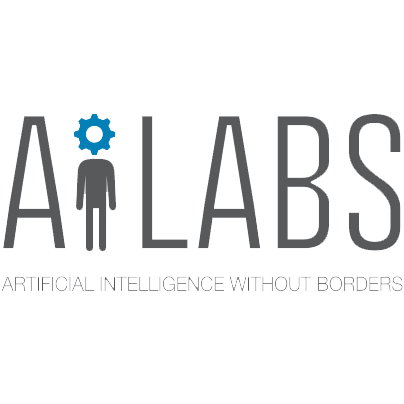Wouldn’t it be great if the next time you felt the need to refresh your wardrobe, your favorite online portal is ready with the latest fashion trends that you wouldn’t be able to keep your hands off? But how could a machine know your preferences? Well, that’s where AI comes in. By viewing your shopping history and analyzing your search patterns, AI can predict exactly what you may like during a particular time of the year. Summer’s here guys, time to hit the beach!

Benefits of AI in retail
The retail industry has benefited a lot from the advances in AI. Be it sales, customer relationship management, recommendations or logistics and delivery, AI has found a way to boost operations under all segments. A study from Capgemini Research Institute pointed out that over a quarter of retailers surveyed by the institute are deploying AI. The report states that 71% of the retailers insist than AI is creating jobs, while 75% of them pointed out that no jobs were taken away by AI. Moreover, the implementation of AI has led to lower customer complaints and higher sales. All these are positive signs for embracing AI in the retail industry, where it clearly has tremendous potential.
AI in retail use cases
In 2018, HDFC Bank announced the launch of IRA 2.0, a humanoid which will enhance customer experience through interaction, answering FAQs and guiding them inside the branch. Definitely not something you see every day, a ‘smart’ robot with voice navigation guiding you through a bank. These robots are expected to increase footfall and customer satisfaction. That shows exactly how far AI has come, and why the companies are investing in AI innovations. Chatbots have been deployed in various retail websites, mainly for customer support. They can engage in conversations without human interruption and provide product and service details to customers. Though chatbots are task-specific (you cannot ask a chatbot on a grocery website to provide weather predictions), they are adept in the task they are designed for, and can provide desirable results. They also provide you notifications in the future when a new product or service is launched. 1-800 Flowers has launched an AI-powered concierge which can successfully reply to customer questions, help customers find the best gifts, and assist them through the entire shopping experience. Fashion mirror technology allows you to try on dresses without actually putting them on. Select a dress and size, and the mirror will show exactly how it would look on you. Change the color, size, design and try on different outfits virtually, making the purchase decisions quick and easy. Would be great to have such hassle-free try-ons at your nearby store, right? You might not have to wait for long for that to happen.
AI in retail solutions
By crunching high volumes of data and identifying patterns based on weather, location, sales history and other parameters, AI can help retailers in inventory management and restocking. This will help in significantly cutting down costs, speed up deliveries and avoid stocking up on items which are less likely to sell. Also by identifying the right items to stock up during a given season, companies can boost their sales, and customers won’t have to worry about preferred sizes and styles not being available. A future without out-of-stock may surely be on the cards with AI at our side.
A crucial segment of the retail industry is customer relationship management (or CRM). Building a fruitful relationship with a customer is a primary objective of any sales personnel. With the help of AI, we can gain insights regarding the customer trends and gain insights on which set of customers to prioritize over others. This way, we can segment our customer base for different products and boost sales. Another task that AI can perform is customer recommendations. If you buy a shirt is some online store, you will immediately be recommended with trousers that would go with it. By analyzing millions of data entries, AI can predict what sort of combinations of products a customer is likely to buy and make recommendations accordingly. This can save you hours of searching on a website.
Payment services have also seen improvement with the help of AI. A store where you can walk in, buy stuff and just leave – sounds exciting, right? That’s exactly what Amazon Go brings you. Using deep learning algorithms, computer vision and sensor fusion, Amazon has come up with this amazing technology. No queues for billing, you’ll be charged from your Amazon account once you exit. While there are only six such stores in the US right now, we can surely expect many more of them around the world in the near future. Leveraging AI-based algorithms for payments services will help a great deal in fraud detection. Patterns in many of the fraudulent transactions are difficult or impossible for humans to track, and that’s where machine learning algorithms comes to the rescue. Feed labelled transactions to the algorithm, and it will come up with a model to track down the fraudulent ones. PayPal has managed to reduce fraud rate to 0.32% of revenue using such algorithms, and further improvements are in order.

Future of AI in retail
You have ordered some product at a retail site and paid for it too. Now it’s time for delivery. And AI has found ways to help improve this part too. Dominos is working on a robotic unite, called DRU, which will deliver foods and drinks via the best optimized path. Though such units are not commercially available yet, you shouldn’t be surprised to see a robot delivering your pizza, tasty and fresh, right at your door on party night. Even Amazon is working on drones for delivery of products, with a dream of delivering packages to customers around the world within 30 minutes. Your Amazon orders may be reaching you from the sky in the future, and the unmanned Prime Air vehicles will be as common as goods trucks on the roads.
Overall, we can say that just like every other industry, AI has shown the potential to revolutionize the retail industry. There is billions of dollars of profit up for grabs, and leading companies of the world will continue to invest in AI to maximize their revenue. By showcasing their successful AI use cases, the big guns can pave the way for small and medium scale companies to adopt AI. By advancing processes in store, providing insights from huge volumes of data and increasing revenue, AI will surely be a core part of the retail industry.
References:
1)https://emerj.com/ai-sector-overviews/artificial-intelligence-retail/
2)https://www.capgemini.com/news/ai-in-retail-report/
3)https://rubygarage.org/blog/11-use-cases-of-ai-in-retail
4)https://www.forbes.com/sites/forbestechcouncil/2018/11/21/pragmatic-ai-for-retail-an-introduction/#6bc0dbdf7f91




Thanks for sharing nice information and nice article and very useful information…
hi,
Thanks For sharing Good information and well explained about the basic overview of Artificial Intelligence This is a good use for basic learners about course..